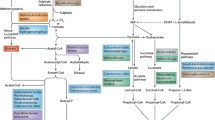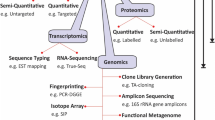Abstract
Imbalanced intestinal microbiota is associated with diseases, including inflammatory bowel disease and obesity, and diet can alter the structure of the gut microbiota. In this study, the effects of dietary treatments including the potential probiotic Lactiplantibacillus plantarum FBT215 with/without prebiotics on the intestinal microbiota composition of mice were investigated. Lactiplantibacillus plantarum FBT215 administration significantly decreased the Firmicutes/Bacteroidetes ratio and increased the abundance of Muribaculum and Duncaniella. The diversity within and between groups was measured according to α and β diversity metrics, respectively. The Shannon index of α diversity decreased significantly in all treatment groups except the probiotic group, although this group showed an increase in the Chao1 index. Principal coordinate analysis of β diversity showed that the groups had different species distributions. Finally, gamma-aminobutyric acid (GABA) concentration increased in groups fed L. plantarum FBT215. These findings improve our understanding of the association between the gut microbiota structure and specific probiotic/prebiotic-containing diets.





Similar content being viewed by others
References
Anwar H, Iftikhar A, Muzaffar H, Almatroudi A, Allemailem KS, Navaid S, Saleem S, Khurshid M. Biodiversity of gut microbiota: impact of various host and environmental factors. BioMed Research International. 2021: 5575245 (2021)
Ballan R, Battistini C, Xavier-Santos D, Saad SMI. Interactions of probiotics and prebiotics with the gut microbiota. Progress in Molecular Biology and Translational Science. 171: 265-300 (2020)
Carding S, Verbeke K, Vipond DT, Corfe BM, Owen LJ. Dysbiosis of the gut microbiota in disease. Microbial Ecology in Health and Disease. 26: 26191 (2015)
Chang CS, Liao YC, Huang CT, Lin CM, Cheung CHY, Ruan JW, Yu WH, Tsai YT, Lin IJ, Huang CH, Liou JS, Chou YH, Chien HJ, Chuang HL, Juan HF, Huang HC, Chan HL, Liao YC, Tang SC, Su YW, Tan TH, Baumler AJ, Kao CY. Identification of a gut microbiota member that ameliorates DSS-induced colitis in intestinal barrier enhanced Dusp6-deficient mice. Cell Reports. 37: 110016 (2021)
Chen J, Bittinger K, Charlson ES, Hoffmann C, Lewis J, Wu GD, Collman RG, Bushman FD, Li HZ. Associating microbiome composition with environmental covariates using generalized UniFrac distances. Bioinformatics. 28: 2106-2113 (2012)
Chen C, Zhao G, Chen W, Guo B. Metabolism of fructooligosaccharides in Lactobacillus plantarum ST-III via differential gene transcription and alteration of cell membrane fluidity. Applied and Environmental Microbiology. 81: 7697-7707 (2015)
Claesson MJ, Cusack S, O'Sullivan O, Greene-Diniz R, de Weerd H, Flannery E, Marchesi JR, Falush D, Dinan T, Fitzgerald G, Stanton C, van Sinderen D, O'Connor M, Harnedy N, O'Connor K, Henry C, O'Mahony D, Fitzgerald AP, Shanahan F, Twomey C, Hill C, Ross RP, O'Toole PW. Composition, variability, and temporal stability of the intestinal microbiota of the elderly. Proceedings of the National Academy of Sciences of the United States of America. 108: 4586-4591 (2011)
Cui S, Guo W, Chen C, Tang X, Zhao J, Mao B, Zhang H. Metagenomic analysis of the effects of Lactiplantibacillus plantarum and fructooligosaccharides (FOS) on the fecal microbiota structure in mice. Foods. 11: 1187 (2022)
Dobranowski PA, Tang C, Sauve JP, Menzies SC, Sly LM. Compositional changes to the ileal microbiome precede the onset of spontaneous ileitis in SHIP deficient mice. Gut Microbes. 10: 578-598 (2019)
Fukasawa T, Kamei A, Watanabe Y, Koga J, Abe K. Short-chain fructooligosaccharide regulates hepatic peroxisome proliferator-activated receptor alpha and farnesoid X receptor target gene expression in rats. Journal of Agricultural and Food Chemistry. 58: 7007-7012 (2010)
Fuller R. Probiotics in human medicine. Gut. 32: 439-442 (1991)
Guarino MPL, Altomare A, Emerenziani S, Di Rosa C, Ribolsi M, Balestrieri P, Iovino P, Rocchi G, Cicala M. Mechanisms of action of prebiotics and their effects on gastro-intestinal disorders in adults. Nutrients 12: 1037 (2020)
Haas KN, Blanchard JL. Kineothrix alysoides, gen. nov., sp nov., a saccharolytic butyrate-producer within the family Lachnospiraceae. International Journal of Systematic and Evolutionary Microbiology. 67: 402-410 (2017)
Hemarajata P, Versalovic J. Effects of probiotics on gut microbiota: mechanisms of intestinal immunomodulation and neuromodulation. Therapeutic Advances in Gastroenterology. 6: 39-51 (2013)
Illumina, 16S metagenomic sequencing library preparation. Available from: https://support.illumina.com. Accessed Nov. 27, 2013
Kim BR, Shin J, Guevarra R, Lee JH, Kim DW, Seol KH, Lee JH, Kim HB, Isaacson R. Deciphering diversity indices for a better understanding of microbial communities. Journal of Microbiology and Biotechnology. 27: 2089-2093 (2017)
Kim J, Lee MH, Kim MS, Kim GH, Yoon SS. Probiotic properties and optimization of gamma-aminobutyric acid production by Lactiplantibacillus plantarum FBT215. Journal of Microbiology and Biotechnology. 32: 783-791 (2022)
Larsen OFA, Claassen E. The mechanistic link between health and gut microbiota diversity. Scientific Reports. 8: 2183 (2018)
Ley RE, Backhed F, Turnbaugh P, Lozupone CA, Knight RD, Gordon JI. Obesity alters gut microbial ecology. Proceedings of the National Academy of Sciences of the United States of America. 102: 11070–11075 (2005)
Li M, Wang B, Zhang M, Rantalainen M, Wang S, Zhou H, Zhang Y, Shen J, Pang X, Zhang M, Wei H, Chen Y, Lu H, Zuo J, Su M, Qiu Y, Jia W, Xiao C, Smith LM, Yang S, Holmes E, Tang H, Zhao G, Nicholson JK, Li L, Zhao L. Symbiotic gut microbes modulate human metabolic phenotypes. Proceedings of the National Academy of Sciences of the United States of America. 105: 2117–2122 (2008)
Li HY, Zhou DD, Gan RY, Huang SY, Zhao CN, Shang A, Xu XY, Li HB. Effects and mechanisms of probiotics, prebiotics, synbiotics, and postbiotics on metabolic diseases targeting gut microbiota: a narrative review. Nutrients. 13: 3211 (2021)
Liu QF, Kim HM, Lim S, Chung MJ, Lim CY, Koo BS, Kang SS. Effect of probiotic administration on gut microbiota and depressive behaviors in mice. DARU Journal of Pharmaceutical Sciences. 28: 181-189 (2020)
MacFarlane S, Cleary S, Bahrami B, Reynolds N, Macfarlane GT. Synbiotic consumption changes the metabolism and composition of the gut microbiota in older people and modifies inflammatory processes: a randomised, double-blind, placebo-controlled crossover study. Alimentary Pharmacology & Therapeutics. 38: 804-816 (2013)
Noh CK, Kim BS, Hong G, Cheong JY, Lee KJ. Effects of the administration of probiotics on fecal microbiota diversity and composition in healthy individuals. Journal of Neurogastroenterology and Motility. 24: 452-459 (2018)
O'Toole PW, Cooney JC. Probiotic bacteria influence the composition and function of the intestinal microbiota. Interdisciplinary Perspectives on Infectious Diseases. 2008: 175285 (2008)
Roberfroid MB. Prebiotics and synbiotics: concepts and nutritional properties. British Journal of Nutrition. 80: S197-S202 (1998)
Soundharrajan I, Kuppusamy P, Srisesharam S, Lee JC, Sivanesan R, Kim D, Choi KC. Positive metabolic effects of selected probiotic bacteria on diet-induced obesity in mice are associated with improvement of dysbiotic gut microbiota. The FASEB Journal. 34: 12289-12307 (2020)
Stojanov S, Berlec A, Strukelj B. The influence of probiotics on the Firmicutes/Bacteroidetes ratio in the treatment of obesity and inflammatory bowel disease. Microorganisms. 8: 1715 (2020)
Xie Q, Pan M, Huang R, Tian X, Tao X, Shah NP, Wei H, Wan C. Short communication: modulation of the small intestinal microbial community composition over short-term or long-term administration with Lactobacillus plantarum ZDY2013. Journal of Dairy Science. 99: 6913-6921 (2016)
Zhou Y, Zhang F, Mao L, Feng T, Wang K, Xu M, Lv B, Wang X. Bifico relieves irritable bowel syndrome by regulating gut microbiota dysbiosis and inflammatory cytokines. European Journal of Nutrition. (2022). https://doi.org/10.1007/s00394-022-02958-0
Zhu L, Qin S, Zhai S, Gao Y, Li L. Inulin with different degrees of polymerization modulates composition of intestinal microbiota in mice. FEMS Microbiology Letters. (2017). https://doi.org/10.1093/femsle/fnx075
Acknowledgements
This work was supported by a Grant from the Commercializations Promotion Agency for R&D Outcomes (COMPA), funded by the Ministry of Science and ICT, Republic of Korea (Project Number 1711150496).
Author information
Authors and Affiliations
Corresponding author
Ethics declarations
Conflict of interest
The authors declare no conflict or interest.
Ethical approval
This study was approved by the Institutional Animal Care and Use Committee (IACUC) at Yonsei University (YWCI-202104-005-02).
Additional information
Publisher's Note
Springer Nature remains neutral with regard to jurisdictional claims in published maps and institutional affiliations.
Rights and permissions
Springer Nature or its licensor holds exclusive rights to this article under a publishing agreement with the author(s) or other rightsholder(s); author self-archiving of the accepted manuscript version of this article is solely governed by the terms of such publishing agreement and applicable law.
About this article
Cite this article
Lee, MH., Kim, J., Kim, GH. et al. Effects of Lactiplantibacillus plantarum FBT215 and prebiotics on the gut microbiota structure of mice. Food Sci Biotechnol 32, 481–488 (2023). https://doi.org/10.1007/s10068-022-01185-x
Received:
Revised:
Accepted:
Published:
Issue Date:
DOI: https://doi.org/10.1007/s10068-022-01185-x




